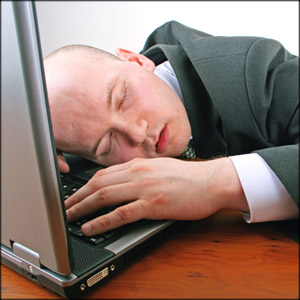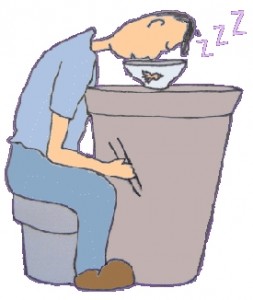-
Health Corner: Types of Sleep Disorder Explained
Sunday, July 6th, 2025by Dr. Gregory Brown
 Do you have abnormal sleep habits, but don’t know the reason why? There are a variety of types of sleep disorder which affect untold numbers of people around the world. Admitting that you need professional help for your sleeping problem is an important first step in finding a solution.
Do you have abnormal sleep habits, but don’t know the reason why? There are a variety of types of sleep disorder which affect untold numbers of people around the world. Admitting that you need professional help for your sleeping problem is an important first step in finding a solution.Understanding the kind of sleep disorder you are suffering from is the beginning to finding a cure for your type of sleeplessness. In consultation with a health care professional, you will be able to diagnose what kind of sleep disorder you are suffering from and seek a cure. Normal sleep cycles can be restored if the proper treatment is found, which often includes changes in habits and lifestyle.
Sleep Apnea
If you sleep is marked by heavy snoring and gasping for air, along with occasional snorting, then you may have sleep apnea. Usually this condition is noticed by your husband or wife in bed next to you.
Other symptoms of sleep apnea are waking up with a headache, feeling like you haven’t slept well, and general sleepiness during the day. The sleep apnea CPAP medical device is sometimes used, which involves wearing a special mask at night that pumps out pressurized air.
On the other hand, if you find it hard to fall asleep and stay asleep, you may have the sleep disorder insomnia. Other insomnia symptoms are waking up very early and being fatigued and tired all the time. Insomnia is often a warning sign of a more serious physical or psychological problem.
Restless Leg Syndrome
Restless leg syndrome, known as RLS, causes a person to move their legs periodically when you they lying down. RLS also manifests itself with a feeling of itchy skin or insects crawling on the legs. People with the sleep disorder RLS often kick their legs while asleep and don’t realize it.
People suffering from restless leg have difficulties in falling asleep because of this leg movement. It also creates obvious problems if they are sleeping in the same bed with another person.
Narcolepsy
 Narcolepsy is characterized by falling asleep suddenly without warning. People with this “sleeping sickness” feel tired all the time and want to take naps during the day. Narcolepsy stories are filled with accounts of embarrassing situations caused by dozing off suddenly.
Narcolepsy is characterized by falling asleep suddenly without warning. People with this “sleeping sickness” feel tired all the time and want to take naps during the day. Narcolepsy stories are filled with accounts of embarrassing situations caused by dozing off suddenly.Commonly-experienced narcolepsy symptoms are a loss of muscle control despite having emotional awareness while awake. Many people also experience temporary paralysis while asleep. Colorful and vivid dreams often happen during these short naps, followed at times by a heavy and deep sleep.
Circadian Rhythm Sleep Disorders
The internal biological clock that regulates our 24-hour sleep-wake cycle is also known as our circadian rhythm. External light is the primary factor that influences circadian rhythms.
For example, when the sun rises each morning, our brain tells our body that it’s time to wake up. Conversely, when there is less light at night, our brain triggers the release of melatonin, which is the hormone that makes us sleepy.
When our circadian rhythms are suddenly disrupted, we may feel groggy, disoriented, and sleepy at inappropriate times. Abnormal circadian rhythms have been linked to a variety of sleep disorders, including insomnia, jet lag, and shift work sleeping problems.
Jet lag is a temporary disruption in our circadian rhythms that occurs when we travel across several time zones. Jet lag symptoms include fatigue, headache, daytime sleepiness, and insomnia. These symptoms typically present themselves soon after flying across two or more time zones.
The longer your flight, the more serious the jet lag symptoms. The direction of your flight also makes a difference. Flying toward the east tends to cause worse jet lag than flying toward the west.
As a rule of thumb, it normally requires one day per time zone crossed to adjust to the local time. So for example if you fly from San Francisco to Boston (a distance of three time zones), your jet lag should be cured within three days.
Shift work sleep disorder occurs when your work schedule and your circadian rhythm are out of sync. In our 24-hour working world, many of us have to work night shifts, early morning shifts, or even rotating shifts. These schedules force us to work when our body is telling us to go to sleep, and to want to sleep when we should be awake.
The majority of shift workers get less good quality sleep than those with a regular daytime work schedule. Due to sleep deprivation, many shift workers struggle with sleepiness and a consequent lack of mental sharpness. This not only cuts into their productivity, but also puts them at risk of workplace injury.
Delayed sleep phase disorder is an affliction in which our circadian rhythm is significantly delayed. As a result, we go to sleep and wake up much later than normal folks. For example, we may not feel sleepy until 4 a.m., at which time we go to bed and sleep soundly until lunchtime.
Delayed sleep phase disorder makes it difficult for people to keep normal hours and thus go to school, work a 9-to-5 job or otherwise live a “normal” life. It’s important to realize that this sleeping problem is not just a preference for staying up late or being a “night person.” There are more serious factors involved.
Individuals with delayed sleep phase disorder are often unable to fall asleep earlier than 3 or 4 a.m., no matter how hard they try. Delayed sleep phase disorder is most often seen in teenagers, and the majority of them will eventually grow out of it.
For those individuals who continue to struggle with a biological clock that is out of sync, treatments such as light therapy and chronotherapy can be of help. To learn more about these sleep disorder treatments, make an appointment with a sleep doctor or your local sleep clinic.
Sleep Disorder Clinics
If you suspect that you may suffer from one of the above types of sleep disorder, then consult with a medical doctor or sleep clinic. It can be dangerous to doze off during normal activities like driving a car, so don’t ignore this potentially serious medical condition.
Sleep clinics which specialize in diagnosing and treating sleep disorders are often recommended for people whom natural sleep cures have failed. Sleep centers have experienced staff that will analyze and recommend solutions to your unique circumstances which make it hard to fall asleep.
(published December 29, 2010)


